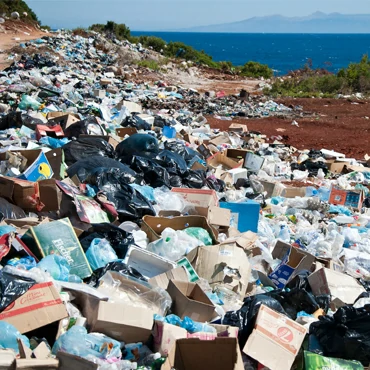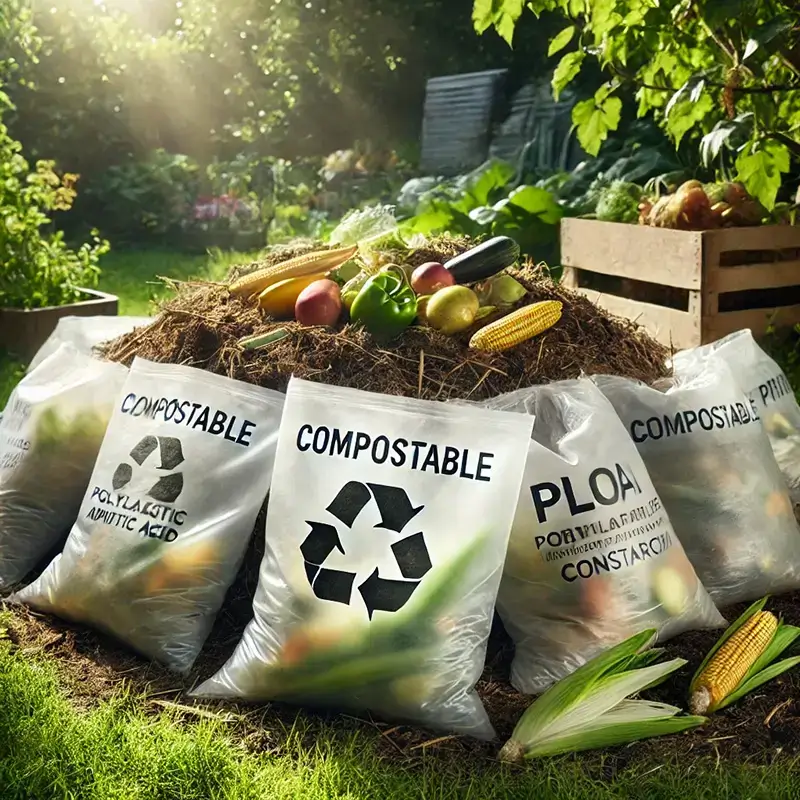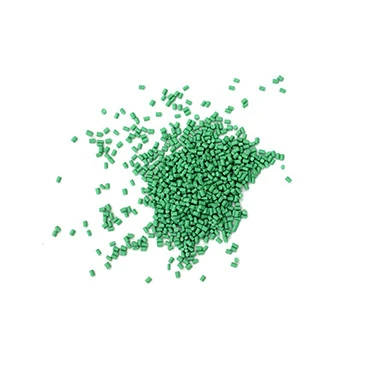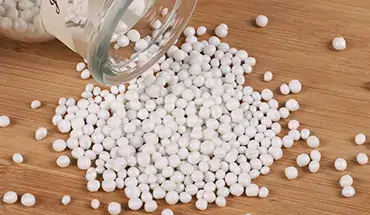Introduction
Plastic bags are ubiquitous in our daily lives. From carrying groceries to lining trash cans, they’ve become synonymous with convenience. But have you ever stopped to think about the true cost of that convenience? This isn’t just about the few cents you might pay at the checkout; it’s about a much higher price – the one we pay for the detrimental effects of plastic bags on our environment, health, and economy. Let’s peel back the layers and take a hard look at why our love affair with plastic bags needs a serious rethink, especially if you’re in a metal, plastic processing, automotive, construction, or educational institution. You, more than most, have the power to make a significant shift.
The Environmental Toll of Plastic Bags
The environmental impact of plastic bags is, frankly, devastating. It’s a multi-faceted problem that touches every corner of our planet. Let’s break it down:
Choking Our Oceans and Marine Life
Think about it – how often do you see plastic bags floating in waterways or washed up on beaches? These bags don’t just disappear. They end up in our oceans, where they pose a serious threat to marine life. Sea turtles mistake them for jellyfish, seabirds ingest them, and fish get entangled in them. These plastics can clog the intestines of living things and release harmful chemicals. It’s a tragic sight, and the consequences are far-reaching, disrupting entire ecosystems. Plastic bags contribute to the growing problem of ocean plastic pollution, a crisis that demands immediate attention. Did you know that by 2050, there could be more plastic than fish in the sea? That’s a horrifying thought, isn’t it?
Landfills Overflowing: A Growing Problem
Most plastic bags end up in landfills, where they take hundreds, even thousands, of years to decompose. Think mountains of waste, leaching harmful chemicals into the soil and groundwater. We’re running out of space, and the environmental consequences of overflowing landfills are severe. It’s a burden we’re leaving for future generations. As businesses and institutions, we generate a significant amount of waste. Are we doing enough to minimize our contribution to this growing problem?
Soil Contamination and Its Consequences
Soil is the foundation of our ecosystems and our food supply. When plastic bags break down, they release harmful chemicals into the soil, contaminating it and affecting its fertility. This can have a ripple effect, impacting agriculture, plant life, and the overall health of the environment. Think about the long-term implications for food production and biodiversity. It’s a chain reaction we can’t afford to ignore.
Greenhouse Gas Emissions: The Climate Connection
The production of plastic bags relies heavily on fossil fuels, contributing to greenhouse gas emissions and climate change. From the extraction of raw materials to the manufacturing process and transportation, the carbon footprint of plastic bags is substantial. And it doesn’t end there; even when they decompose in landfills, they release methane, a potent greenhouse gas. We are in a climate crisis, and every effort to reduce our carbon footprint matters. Aren’t we all responsible for making more sustainable choices?

The Human Health Risks Associated with Plastic Bags
It’s not just the environment that suffers; our health is at risk too. The dangers posed by plastic bags are closer than you think.
Chemical Leaching into Food and Water
Plastic bags can leach harmful chemicals, such as BPA and phthalates, into the food and water they come into contact with. These chemicals are endocrine disruptors, meaning they can interfere with our hormones and potentially lead to various health problems, including developmental issues and reproductive disorders. Is the convenience of a plastic bag worth risking your health and the health of your customers or students?
Microplastics: An Invisible Threat
As plastic bags break down, they don’t disappear; they just fragment into smaller and smaller pieces, eventually becoming microplastics. These tiny particles are now pervasive in our environment – in our air, water, and even our food. We’re ingesting and inhaling them, and the long-term health effects are still largely unknown, but early research suggests potential links to inflammation, immune system disruption, and even cancer. It’s a scary thought, isn’t it? That something so seemingly innocuous could pose such a significant health risk.
Economic Disadvantages: More Than Meets the Eye
The negative impacts of plastic bags extend to our economy as well. It’s a drain on resources and a burden on taxpayers.
The High Cost of Cleanup and Waste Management
Cleaning up plastic bag litter is a costly and ongoing effort. Cities and municipalities spend millions of dollars every year on waste management and cleanup initiatives, trying to combat the ever-growing tide of plastic waste. This is money that could be invested in other essential services. Think about it – are we really getting our money’s worth from these “free” plastic bags?
Impact on Tourism and Local Economies
Plastic bag pollution can damage the beauty of natural landscapes and tourist destinations, leading to a decline in tourism and impacting local economies that rely on it. Who wants to visit a beach littered with plastic bags? The aesthetic impact is undeniable, and it translates into real economic losses for communities.
Beyond the Bin: The Afterlife (or Lack Thereof) of Plastic Bags
Let’s face it, the life cycle of a plastic bag is far from sustainable.
The Myth of Recycling: A Broken System
While some types of plastic are recyclable, plastic bags are notoriously difficult and expensive to recycle. They often get tangled in machinery, contaminate other recyclables, and end up in landfills anyway. The reality is that only a tiny fraction of plastic bags ever get recycled. Recycling, while important, is not a silver bullet solution, especially when it comes to plastic bags. We need to look at the bigger picture.
Degradation Takes Centuries: A Legacy We Leave Behind
Plastic bags are incredibly durable, which is great for carrying groceries but terrible for the environment. That durability means they take hundreds, if not thousands, of years to decompose. We are essentially leaving a legacy of plastic waste for future generations to deal with. Is that the kind of world we want to leave behind? Isn’t it time we took responsibility for our consumption habits?
Are There Any Advantages to Plastic Bags?
To be fair, it’s important to acknowledge some of the reasons why plastic bags became so ubiquitous in the first place.
Cost-Effectiveness and Convenience
Plastic bags are undeniably cheap to produce, making them a cost-effective option for businesses and consumers alike. Their lightweight and compact nature also adds to their convenience. However, this short-term cost saving comes at a significant long-term environmental and societal expense. Are we being penny-wise but pound-foolish?
Durability and Water Resistance
Plastic bags are strong and water-resistant, making them suitable for various applications, particularly in industries where these properties are essential. But again, we must weigh these benefits against the substantial negative impacts. Can we find alternative materials that offer similar performance without the environmental baggage?
The Sustainable Solution: Embracing Compostable Bags
Now for the good news: there’s a better way. Compostable bags offer a sustainable and responsible alternative to conventional plastic bags. If you’re a metal, plastic processing, automotive, construction company, or educational institution, this is where you can make a real difference.
What are Compostable Bags?
Compostable bags are made from plant-based materials, such as cornstarch or PLA (polylactic acid), that break down into natural substances in a composting environment. Unlike regular plastic bags, they don’t leave behind harmful microplastics or toxic residues. They return to the earth, completing a natural cycle. It’s a closed-loop system that benefits both your business and the planet.
Benefits of Compostable Bags for Your Business
Switching to compostable bags isn’t just good for the environment; it’s also good for your business. Here’s how:
- Enhanced Brand Image: Demonstrate your commitment to sustainability and attract environmentally conscious customers. In today’s market, consumers are increasingly demanding eco-friendly options.
- Reduced Environmental Footprint: Minimize your contribution to plastic pollution, landfill waste, and greenhouse gas emissions.
- Compliance with Regulations: Stay ahead of the curve with evolving plastic bag regulations and avoid potential penalties.
- Improved Employee Morale: Engage your employees in a meaningful sustainability initiative and foster a sense of pride.
- Marketing Opportunities: Highlight your use of compostable bags as a key differentiator and attract positive media attention.
- Responsible Waste Management: Compostable bags can be composted along with organic waste, diverting it from landfills and creating valuable compost.

Making the Switch: A Seamless Transition
Making the switch to compostable bags is easier than you might think. As a compostable bag manufacturer, we can provide you with high-quality, certified compostable bags tailored to your specific needs. We offer a range of sizes and styles, ensuring a seamless transition for your business. Click here to customise your compostable bags.
Conclusion: Choosing a Better Future
The disadvantages of plastic bags are undeniable and far-reaching. From environmental pollution to health risks and economic burdens, the true cost of convenience is simply too high. But we have the power to choose a different path. By embracing compostable bags, businesses and institutions like yours can lead the way toward a more sustainable future. It’s not just about reducing waste; it’s about making a conscious decision to protect our planet, health, and communities. So, let’s ditch the plastic and choose a better way forward. The future is compostable. What will you choose?





